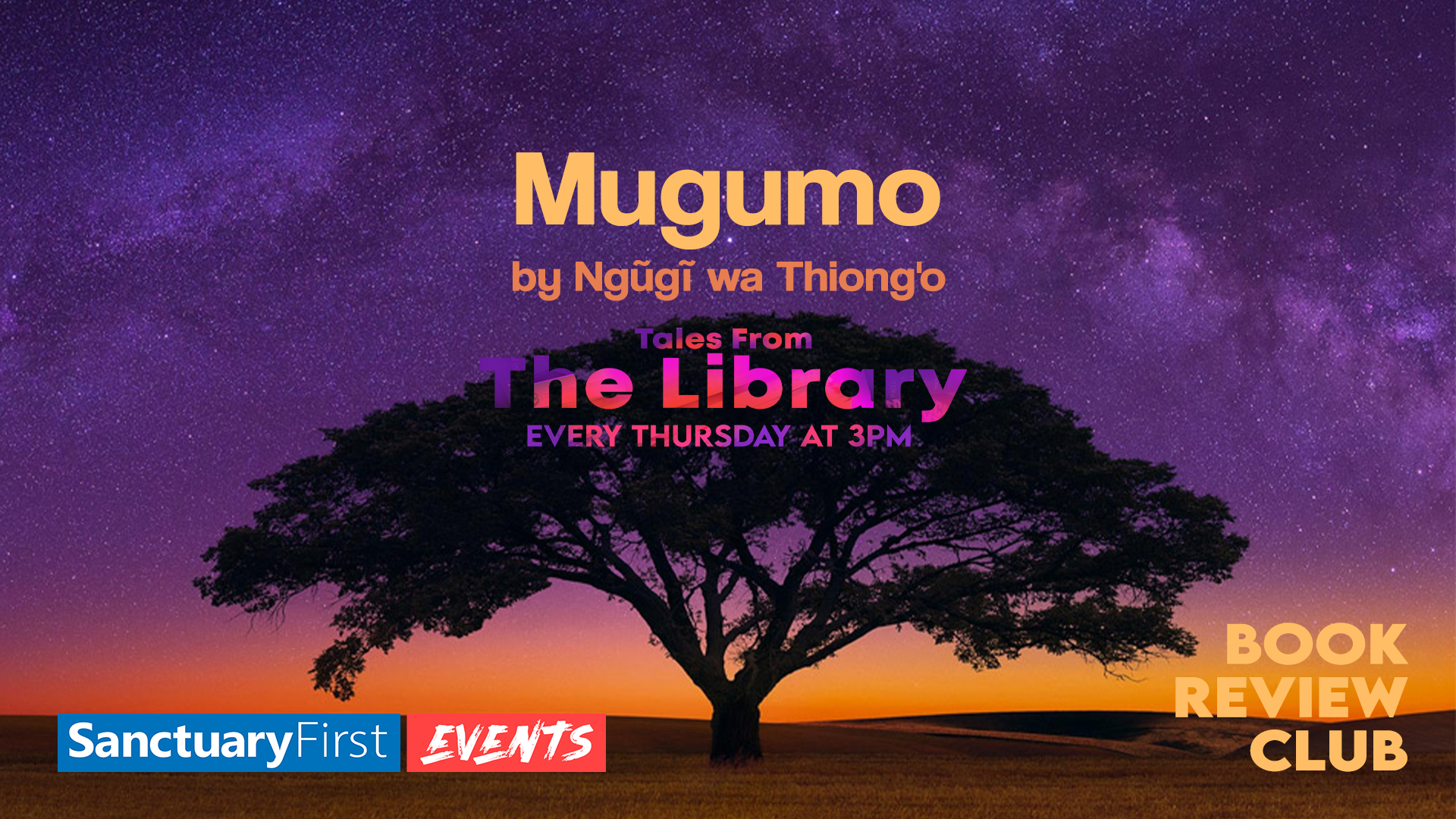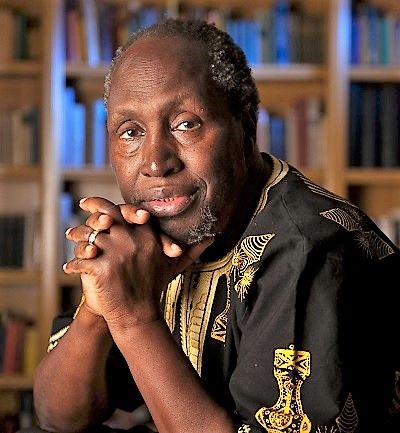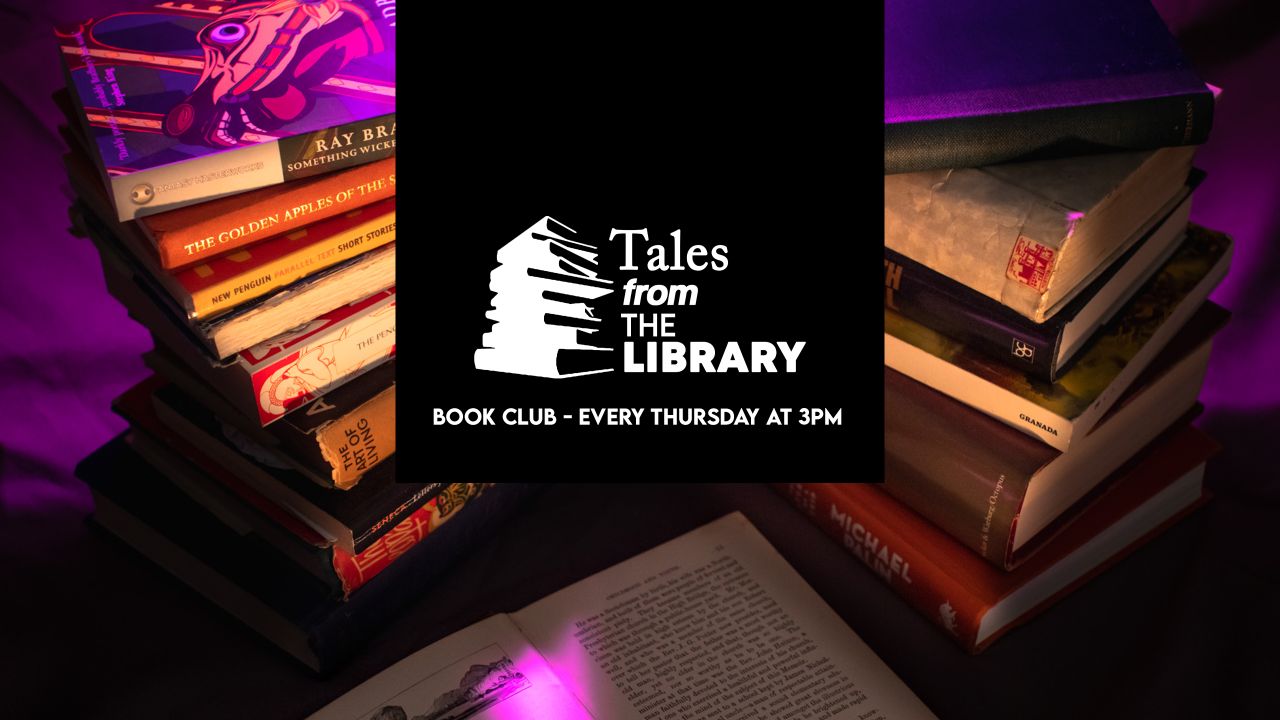Tales From The Library - Mugumo

Above link not working? Click here to launch Zoom session
Mugumo
by Ngũgĩ wa Thiongo
This week will be reading The short story 'Mugumo' from the book 'Secret Lives and Other Stories' by Kenyan Author Ngũgĩ wa Thiongo
'Mugumo' tells the story of a young woman called 'Mukami' who is running away from her home and her abusive husband, along the way she encounters the sacred Mugumo tree that gives the story it's namesake, there she has a vision of the future to guide her. The story reflects a vivid acounting of the cultural beliefs of the people of Kirinyaga and the role that the The ancient Mugumo Fig tree has as a sacred place of the God Murungo.
Mugumo trees
Mugumo fig trees are rare and found only in big forests like Mount Kenya. The Kikuyu community inhabiting the slopes of mount Kirinyaga, which has since been renamed Mount Kenya, considers this tree their shrine. The Mugumo tree, having survived centuries, makes it the only existing tomb for the ancient heroes of this land. Maybe their spirits too are hovering around it giving the tree its sacred importance and hence its special cultural importance. It’s under this tree that Mugo wa Kibiro prophesied and made his home.
It’s under this tree that Mugo wa Kibiro prophesied and made his home. He prophesied about the cultural influences of modernized foreigners that would come to Kenya.In a vision, he saw a long snake that was moving from the seacoast toward the land of kirinyaga. At intervals it stopped to vomit and swallow beautiful pale butterflies. The natives had been fascinated by the butterflies and as they admired them, tried to not only to understand them, but also copy their ways of dressing. Women saw how they could conceal their bare chests with blouses and replace the lesos wrapped around their waists with skirts. The men wore trousers and shirts. They learned from these butterflies that it was evil to be nude, hence giving them a chance to move onto another stage of development. By the time the people of kirinyaga realized their mistakes of admiring the butterflies it was too late. The larvae had already formed and the number of butterflies increased so much that all they could do was watch. And all that they had inherited from their ancestors disappeared and they were left with nothing. But not completely nothing; they learned and adopted a new language.
Murungu and the Fruit of the Forbidden Tree
Humans originally lived at Mbwa. At that time they did not cultivate, they did not need to eat or to wear clothes. God had created a boy first. The boy was not happy, because he had no one to play with. Then a girl emerged, and they played together. They loved each other, and bore a child. God gave them food but forbade them to taste the fruit of a certain tree. A snake, a wise creature, told them that if they ate the fruits of that forbidden tree they would have the intelligence of God. The woman ate a fruit, then offered one to her husband, who refused. The woman insisted, so he took the fruit and ate it.
For more on this topic, check out this great article on the Christian Missionaries that encountered the Mugumo tree:
What happened when Christian missionaries met Kenya’s sacred fig trees
About the author
 Ngũgĩ wa Thiong'o, born James Ngugi; 5 January 1938. is a Kenyan writer and academic who writes primarily in Gikuyu. His work includes novels, plays, short stories, and essays, ranging from literary and social criticism to children's literature.
Ngũgĩ wa Thiong'o, born James Ngugi; 5 January 1938. is a Kenyan writer and academic who writes primarily in Gikuyu. His work includes novels, plays, short stories, and essays, ranging from literary and social criticism to children's literature.
His debut novel, Weep Not, Child, was published in May 1964, becoming the first novel in English to be published by a writer from East Africa. Later that year, having won a scholarship to the University of Leeds to study for an MA, Ngũgĩ travelled to England, where he was when his second novel, The River Between, came out in 1965. The River Between, which has as its background the Mau Mau Uprising, and described an unhappy romance between Christians and non-Christians, was previously on Kenya's national secondary school syllabus.
His short story The Upright Revolution: Or Why Humans Walk Upright, is translated into 94 languages from around the world.
What is the book club?
Join us every week for a book club, each week we will read a new short story of part of a larger book, the books will be made available as an audio book and we will meet as a group via zoom to chat about the story. All are welcome, hope to see you there.
How to join the club to chat
Once you are singed up the link to join via zoom will apear above on this page at 3PM on Thursday. To join you will need a phone/tablet or laptop with a built in camera and microphone (most modern devices come with this) you may need to download the zoom app onto your phone if you are using a phone to join.
Sign up to join
Don't have a Log In? Create a profile now




 Add to Favourites
Add to Favourites




Login to comment.